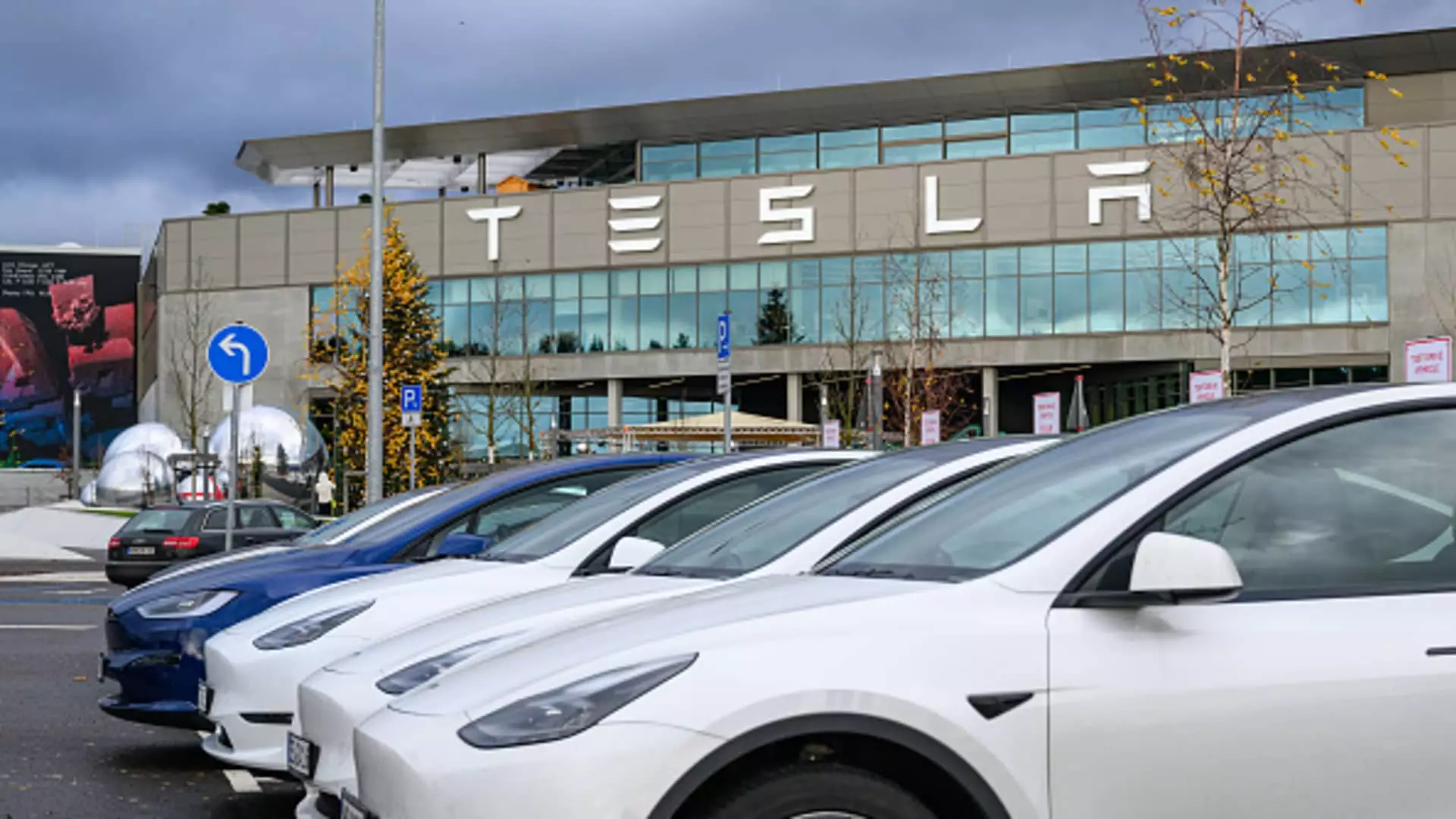This week has proven to be a tumultuous one for Tesla, the renowned electric vehicle (EV) manufacturer. After starting the week on a worrying note, with a significant dip in share prices, the company’s stocks made a modest comeback by Friday. As the market closed on that day, shares climbed 0.7%, helping to erase earlier losses that even saw the company lose as much as 6% during U.S. premarket trading. However, despite this brief recovery, the stock remains slightly down for the week, indicating an overall climate of uncertainty surrounding Tesla’s future performance.
The environment surrounding Tesla’s share performance is significantly influenced by shifting political dynamics. Notably, after Donald Trump’s presidential election victory, Tesla saw a substantial stock rally—up by 72% since the night of the election—prompting investor optimism that the company would thrive under a pro-business administration. Elon Musk’s close relationship with Trump is particularly noteworthy; Musk was appointed to co-chair a new governmental initiative aimed at enhancing operational efficiency, an alignment that many saw as a critical advantage for Tesla.
This political backing raised questions about the future regulatory landscape for autonomous vehicles, an area that Tesla is keen on dominating. If Trump’s administration indeed plans to implement a federal framework for self-driving vehicle regulations, that could serve as a significant boost for Tesla as it pivots toward developing mass fleets of autonomous cars, a concept Musk dubbed “robotaxi” services.
Challenges in Meeting Autonomous Vehicle Promises
Despite the hopeful projections and political support, Tesla has not yet delivered on its ambitious promises regarding autonomous driving. While the company has christened products like the Cybercab at events, it still faces formidable challenges in rolling out truly driverless vehicles. Tesla’s Autopilot and Full Self-Driving services currently necessitate human oversight, raising safety concerns and regulatory scrutiny.
Adding to the pressure, a recent report from the European Automobile Manufacturers Association indicated a staggering 40.9% decline in Tesla vehicles’ sales in November, a figure that dwarfs the overall dip in battery electric vehicle sales across the continent. As consumer demand fluctuates, the company faces existential questions about its market strategy and product offerings.
Further complicating matters, Tesla announced a recall of nearly 700,000 vehicles in the U.S. due to a malfunction in the tire pressure monitoring system. Although software-related recalls are not uncommon, and Tesla’s ability to issue “over-the-air” updates allows for swift resolution, such incidents can still tarnish the brand’s reputation. The timing of the recall adds another layer of difficulty to an already challenging week.
Each setback—whether it be declining sales figures or recalls—has implications for investor confidence, causing shareholders to exercise caution. It’s critical for the firm to maintain transparency and respond proactively to any arising issues to uphold its significant market position.
As Tesla moves forward, it faces mounting pressures that necessitate a delicate balance between innovative advancement and the realities of regulatory constraints and market performance. With an ambitious vision at stake, the company must ensure that its technological progress aligns with the evolving expectations of regulators, consumers, and investors alike. Musk’s dream of achieving mass adoption of driverless cars is undeniably ambitious, but without concrete advancements and improvements in their existing products, the road ahead may become even more bumpy.
While Tesla’s stock displayed a brief recovery this week, the company finds itself at a crossroads. Market volatility, combined with external pressures from regulatory scrutiny and internal challenges like product recalls and falling sales, poses substantial risks. Moving ahead, the question remains: can Tesla navigate this tumultuous landscape while remaining a leader in the burgeoning electric vehicle market? This week has underscored the need for Tesla to not only innovate but also to build trust and reliability in its products as well as its corporate governance.

